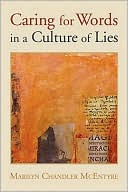Father and Son, Patriot and Loyalist
Critical Thoughts on Sheila L. Skemp's Benjamin and William Franklin
[Analytical Essay written for a college US History class]
Sheila L. Skemp’s Benjamin and William Franklin attempts to disprove the opinion that because Loyalists and Patriots had divergent political views they can simply be categorized into two parties: “good guys and bad guys.” Using the accounts of Benjamin Franklin (a Patriot) and William Franklin (a Loyalist), Skemp’s thesis demonstrates how both men wanted what was best for the colonies. It was their different perspectives of government, not their values, which collided.
Prior to the War, however, all colonists shared an integral belief – that they were Englishman. They were proud of their British heritage and of their King. Benjamin Franklin wrote, “Britain and her Colonies should be considered as one Whole, and not as different States with separate Interests.” (1) This was why Benjamin saw nothing wrong with and even helped his son to acquire the position of the Royal Governorship of New Jersey. The governor was appointed directly by the Crown (not elected by the colonial government). This meant that in order to keep his position, William would find himself having to consistently put the interests of the British government above that of the colonists. The Franklins, however, did not look upon these interests as conflicting. While both Britain and the colonies might have to make some compromises, the end result of their “close relationship” was “mutually beneficial” to both parties (2). As Benjamin and William began to follow very different political careers, however, this belief was continually tested. While his father eventually rejected it, William continued to cling to the traditional and long accepted view of the joint interest of England and its colonies.
Essentially, William feared anarchy. As he observed the revolutionary activities, he wrote in a letter, “All legal Authority and Government seems to be drawing to an End here.” (5) William did not support the tyrannous acts of Parliament. Yet he also did not see them as a justification to completely dissolve colonial bonds with England. In his speech to the New Jersey Assembly on January 13, 1775, he warned against the convening of an illegal congress, stating that such an action would destroy “that Form of Government which it is your Duty by all lawful Means to preserve.” (6) Clearly, even though William did not share the sentiments of the Patriots, this does not mean that he was necessarily against their ideas of freedom, liberty, and self-government. In the same speech to the New Jersey Assembly, he agreed that the elected members of the assembly were “legal representatives” of the people of New Jersey and that they had been entrusted with “a peculiar Guardianship of their Rights and Privileges.” (7) He disagreed, however, that this self-government could be exercised without the oversight of a stronger and well-established British Empire. Independence from the Crown would result in political suicide and any “Rights and Privileges” previously enjoyed would be lost. (8) William (like so many Loyalists) did not know what the outcome of a Revolutionary War would be. He preferred to stand by a time tested system that offered stability over anarchy. The reasoning behind William’s stance proves that he was not an enemy to the colonies. Nor did he have to reject Biblical values in order to support his position. Indeed, William appears to have had a high respect for the Romans 13 command to respect the governing authorities.
Benjamin Franklin, on the other hand, as a representative of the colonies in England, came to understand firsthand the stubbornness and corruption of those in Parliament. Unlike William, he did not believe that independence would result in anarchy. Instead, he came to see the colonies as a rival power to that of England. He was cautious about revolution and at first advocated reform in the British government. Soon, however, he came to realize this was impossible. While his son urged the colonial assemblies to try to heal their rift with England peaceably, Benjamin Franklin understood how impractical this was. He saw that Britain refused to listen to the petition of the American colonies.
Neither William nor Benjamin made a decision overnight to join the Loyalist or Patriot camps. Rather, their beliefs developed as turbulent political events swirled around them. Ultimately, these decisions cannot be judged as necessarily morally right or wrong. William was just as much a patriot as his father. He loved the colonies and did not advocate a tyrannical government. Indeed, the ideas he clung to were ones previously shared by all colonists. Unfortunately, they had grown outdated and ultimately not viable. They could not survive the growing tensions between an Empire and her colonies.
Footnotes
1. Skemp, Sheila L. Benjamin and William Franklin. Bedford/St. Martin's, 1994. pg. 19
2. Ibid, 36
3. Ibid, 37
4. Ibid, 89
5. Ibid, 179
6. Ibid, 176
7. Ibid, 176
8. Ibid, 176
Labels: book reviews, bookish musings, literary criticism
Posted by Nicole Bianchi at 3:26 PM
![]()




 This is life seen through the eyes of a writer. A blog that critically examines literature, music, and film. NB, initials which coincidently coinside with the Latin words "nota bene" (mark well), belong to the blog poster, a bibliophile who likes to haunt libraries and book stores, talk about all things bookish, and ramble at any length on things regarding literature. Many of the articles posted here were written as essays for high school and college.
This is life seen through the eyes of a writer. A blog that critically examines literature, music, and film. NB, initials which coincidently coinside with the Latin words "nota bene" (mark well), belong to the blog poster, a bibliophile who likes to haunt libraries and book stores, talk about all things bookish, and ramble at any length on things regarding literature. Many of the articles posted here were written as essays for high school and college.






0 Comments:
Post a Comment
<< Home